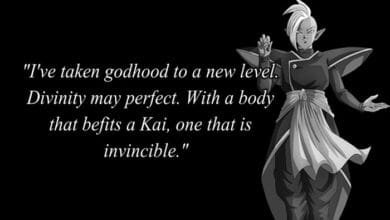Movies: Everything You Need to Know

Movies have the unique ability to entertain, inspire, and transport us to different worlds. From action-packed thrillers to touching dramas, movies offer something for everyone. Whether you’re an aspiring filmmaker, a cinema lover, or just someone who enjoys a great story, there’s a lot to explore in the world of film. This guide delves into different aspects of movies, highlighting their magic and the process behind creating them. Get ready for an in-depth look at one of the most captivating forms of entertainment.
What Defines a Movie?
A movie is a visual storytelling medium that combines audio and visuals to convey a narrative. Unlike books, which rely solely on text, movies use actors, music, dialogue, and visual effects to immerse the audience. The purpose of a movie can vary—some are meant to entertain, while others aim to provoke thought or elicit deep emotional responses. With countless genres and styles, movies cater to a wide range of tastes and preferences, making them an art form accessible to everyone.
The Evolution of Movies
The history of movies is a fascinating journey that spans over a century. Starting from silent black-and-white films to today’s computer-generated spectacles, movies have evolved dramatically. The first movie was produced in the late 19th century, and since then, movies have become more sophisticated in terms of storytelling, visuals, and sound design. Technology has played a crucial role in this evolution, with advancements like CGI, sound synchronization, and digital filmmaking revolutionizing how movies are made and experienced.
Popular Movie Genres
Movies come in many different genres, each offering a unique storytelling experience. Action movies deliver adrenaline-pumping scenes, while comedies bring laughter. Horror movies are meant to scare, whereas dramas often provide deep, emotional narratives. Sci-fi movies explore futuristic concepts and alternate realities, while romances revolve around love stories. Movies are categorized into these genres based on their themes, characters, and the emotions they evoke. Exploring various genres helps moviegoers discover different perspectives and styles that enrich their overall viewing experience.
The Power of Movie Storytelling
Storytelling is at the heart of every mp4moviez , and it’s what makes this medium so captivating. A well-told movie has the power to evoke emotions, make the audience reflect on their own experiences, or even challenge societal norms. Storytelling in movies relies on several key elements, including characters, plot, conflict, and resolution. A great movie brings all these elements together to tell a compelling story that resonates with the audience. From inspiring biopics to epic adventures, movies remind us of the universal themes that connect us all.
The Importance of Movie Directors
The director plays a pivotal role in shaping the vision of a movie. Directors are responsible for making critical decisions regarding casting, camera angles, editing, and more. They collaborate closely with writers, actors, and the production crew to bring a movie to life. Legendary directors like Steven Spielberg, Quentin Tarantino, and Christopher Nolan have left their mark on the industry, creating movies that are iconic and beloved. A director’s vision ultimately defines the movie’s look, feel, and emotional impact, making them essential to the filmmaking process.
Behind the Scenes of a Movie Production
A movie is not just what you see on screen; there is a lot of work that goes on behind the scenes to make it happen. The process of making a movie involves several stages, including pre-production, filming, and post-production. During pre-production, scripts are finalized, actors are cast, and locations are chosen. The actual filming involves shooting the scenes with actors, props, and equipment. In post-production, editors piece the scenes together, add special effects, and finalize the sound. Every stage plays a vital role in bringing a movie from concept to reality.
How Movies Impact Culture
Movies have a profound impact on culture and society. They reflect social issues, historical events, and evolving norms, allowing audiences to gain insights into different cultures and perspectives. Movies can also shape public opinion, spark important conversations, and even inspire change. Iconic movies like “The Godfather,” “Pulp Fiction,” and “Black Panther” have not only entertained millions but also left a lasting impression on popular culture. By exploring the themes, characters, and narratives in movies, we learn more about ourselves and the world we live in.
The Role of Music in Movies
Music plays a significant role in setting the tone and mood of a movie. From John Williams’ epic scores in “Star Wars” to Hans Zimmer’s haunting melodies in “Inception,” music helps create memorable movie moments. The soundtrack of a movie can heighten emotions, build suspense, or provide a sense of nostalgia. Many iconic movie scenes are defined by their accompanying music, which enhances the audience’s overall experience. A great movie soundtrack is an essential component of effective storytelling, helping convey the emotional depth and atmosphere of the film.
The Impact of Technology on Movies
Technology has transformed how movies are made and viewed. From CGI to virtual reality, technological advancements have opened new creative possibilities for filmmakers. Special effects can create scenes that would have been impossible to shoot practically. Streaming services have also changed how audiences access movies, making it easier than ever to enjoy a wide variety of films at home. With technology constantly evolving, the movie industry continues to innovate and push the boundaries of storytelling, resulting in more immersive and diverse viewing experiences for audiences around the world.
The Future of Movies
The future of movies looks promising, with new trends and innovations reshaping the industry. With streaming platforms gaining popularity, the way we watch movies is evolving. Virtual reality, interactive storytelling, and immersive experiences are on the rise, offering viewers new ways to engage with films. Additionally, the industry is becoming more diverse, with more opportunities for underrepresented voices to tell their stories. As technology continues to advance, the future of movies will be filled with groundbreaking storytelling, diverse perspectives, and more ways to experience the magic of cinema.
Conclusion
Movies have a special place in our hearts, bringing stories to life through visuals, sound, and storytelling. From their humble beginnings to the blockbuster hits we enjoy today, movies have evolved significantly, leaving a lasting impact on culture and entertainment. Whether it’s the work of talented directors, the artistry of actors, or the magic of special effects, every aspect of a movie plays a role in captivating audiences worldwide. As technology and storytelling methods continue to evolve, the future of movies is sure to be filled with even more exciting and innovative possibilities.
FAQs
1. What makes a movie different from a television show?
A movie is typically a standalone production with a complete story, whereas a television show consists of multiple episodes telling a story over time. Movies generally have higher production budgets, while TV shows focus on developing characters over extended periods.
2. How long does it take to make a movie?
The time it takes to make a movie can vary greatly, ranging from several months to a few years. Factors such as budget, complexity, and availability of cast and crew all impact the timeline.
3. What is the difference between a movie and a film?
The terms “movie” and “film” are often used interchangeably, but “film” is usually considered more formal or artistic, while “movie” is more commonly used in everyday language to describe cinematic entertainment.
4. How has technology changed the movie industry?
Technology has revolutionized the movie industry by enabling the use of CGI, digital cameras, special effects, and editing software, making movies more visually spectacular and easier to produce.
5. What is the role of a producer in a movie?
A producer oversees the financial and organizational aspects of a movie, including securing funding, managing the budget, and coordinating between the director, actors, and crew to ensure the movie is completed successfully.




